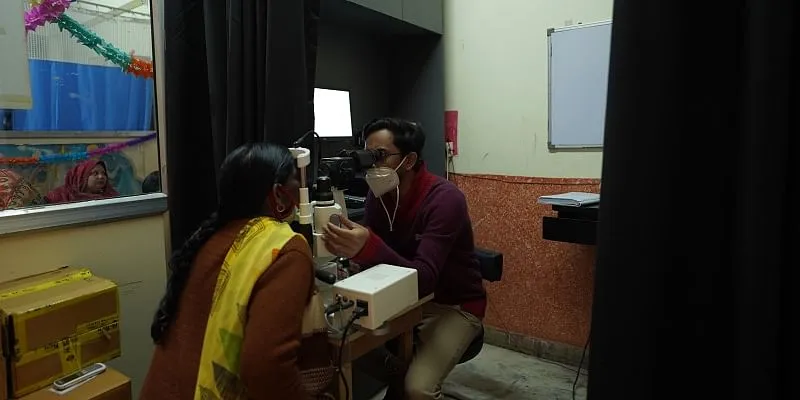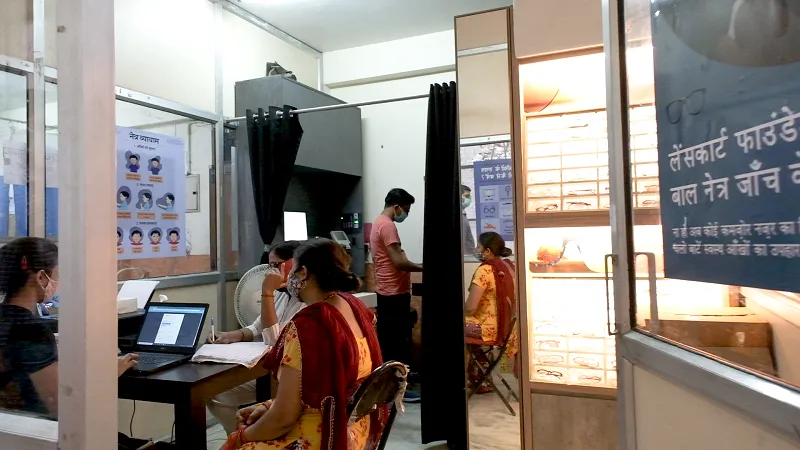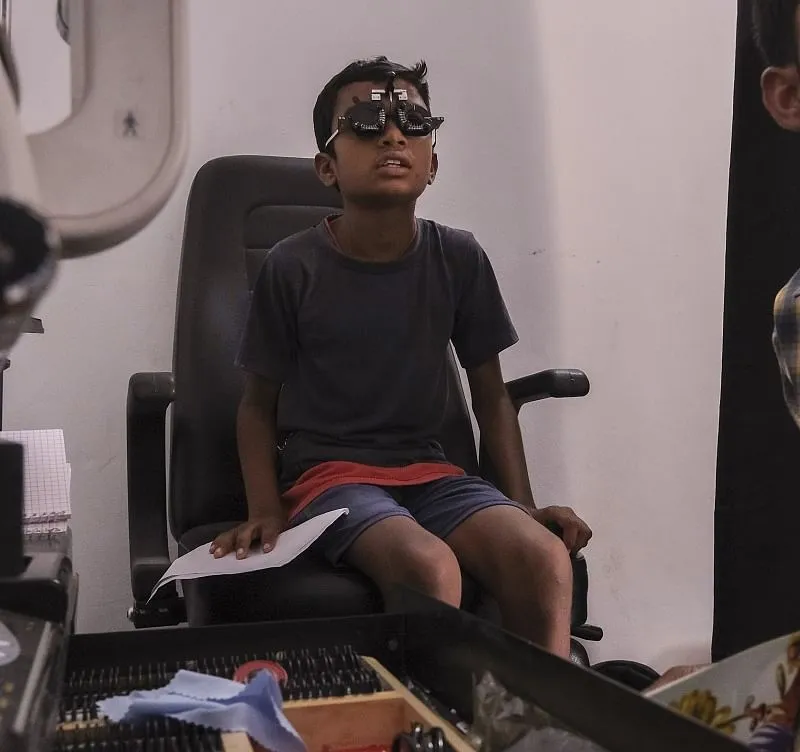Inside Lenskart Foundation’s efforts to provide primary eye care to Indians
Lenskart Foundation—a subsidiary of Faridabad-based startup Lenskart—aims to free India of uncorrected vision problems. Its eye care centres cater to children and adults between 7-80 years old.
When it comes to eye care in India, the statistics are dismal. India, the ‘blind capital of the world’, has nearly 40% of the world's blind population, where 80% of ailments are avoidable with proper care and eye tests.
According to reports, India does not have enough eye care professionals to work along with ophthalmologists to deliver comprehensive eye care to the country’s 1.38 billion population.
In 2020, Peyush Bansal, Founder and CEO of , and his wife, Nidhi Mittal Bansal, started . They realised the country’s primary eye care sector— which involves getting eyes tested and wearing corrective lenses if required—needs a lot of work.

“While Lenskart is trying to make eyewear and eye care as accessible as possible, the business cannot cater to a particular section of society. And this is where Lenskart Foundation comes in,” Nidhi Mittal Bansal, Chairperson of Lenskart Foundation, tells SocialStory.
The foundation has a simple goal—to provide access to eye care facilities, free and comprehensible eye examination, and free the country of refractive error-based blindness. It aims to prevent and control avoidable blindness among the underprivileged population.
Running the centres
In many parts of India, awareness of vision correction and access to eye care centres is low. Lenskart Foundation intends to work towards both these goals through its centres while advocating for the inclusion of vision correction in government health initiatives.
“We want to work with the state and central governments to make eye tests and glasses accessible and affordable everywhere. We can also support the training of existing health care personnel, launching campaigns to inform and educate patients and service providers, and providing essential equipment for screening,” says Nidhi.
Especially for children, visual impairment has a significant impact on their education and development, and the foundation has prioritised their treatment by opening eye care centres across India.

From one of the centres
Nidhi says, “With a priority focus on children, we want to curb the school dropout rate, now at 25%. These facilities are also equipped to examine adults along with their kids.”
Every day, each centre screens close to 50 patients—between the age of 7 to 80.
It opened its first eye care centre in Tughlakabad, Delhi. In the first four months, the foundation screened 3,100 individuals, where 1,951—nearly 63% people—had vision issues. Moreover, it gave away 1,700 free prescription glasses to those in need.
At present, Lenskart Foundation has four centres in Delhi-NCR and one in Gorakhpur, Uttar Pradesh. It will open more centres in Bhopal, Gujarat, and Bengaluru in the next two-three years.
“We largely depend on the two-member team that runs the centre. A patient coordinator and an optometrist are the real people carrying out our mission on the ground,” Nidhi explains.
"The most challenging part of our work is convincing parents to bring their kids for eye testing to the centre. We explain the symptoms their kids may face when they have any eye-related problems. We also educate them that testing at this age will help avoid any severe eye problem later in their lives,” says Varish Alam, Optometrist at the foundation’s Tughlaqabad centre.
Since most individuals are either ignorant or hesitant to get their eyes checked, the foundation has appointed people mobilisers from the community, mostly women, who earn a stipend for convincing their community to go for eye screening.
Besides, it has tied up with NGO partners to understand the region and get related statistics before opening new centres. These NGOs also help the foundation find a space for the centre, handle other logistics, and spread the word in the community.
To date, Lenskart Foundation has screened over 22,000 patients and has given prescription glasses to 40% of its patients across its centres, including nearly 17,000 adults and 4,000 kids.
All its services are done for free, except for a nominal fee of Rs 10 collected for registration. According to Nidhi, this is done so patients take the testing seriously.

Focusing on children
According to Nidhi, these centres are strategically situated, with at least 5,000 underprivileged families living within a four-kilometre radius.
“We plan to open 100 to 150 child eye care centres in the next two years, giving everyone within a four-kilometre radius access to eye care and corrective glasses, if needed,” she adds.
To achieve this further, Lenskart Foundation also organises eye screening camps at different schools, where it trains teachers to conduct preliminary eye tests and send these reports to the foundation periodically to assess and decide when it needs to go back for repeat tests
Screening adults
In addition to the centres, Lenskart Foundation, with its road safety campaign, screens truck drivers and provides them with appropriate glasses.
According to the foundation, most drivers had myopia or nearsightedness, and about 26% needed reading glasses.
“We are doing camps at transport hubs in and around Delhi. We also concluded a campaign with Amazon, where we screened its fleet of truck drivers in a 25-day-long project. We see this as a huge opportunity, where corporates can invite Lenskart Foundation to conduct eye screening camps for their driver partners,” says Nidhi.
To manage the cost, the foundation tries to keep the overheads low. “Main cost is incurred in the product and personnel. We are a subsidiary of Lenskart, and that’s where funding comes. We have also accepted donations from individuals and corporations to run specific projects,” she adds.
Edited by Suman Singh








